AAPA: Special Consultative Status Granted by the United Nations Committee on Non-Governmental Organizations
![]() AAPA-certificate-of-appreciation.jpg
AAPA-certificate-of-appreciation.jpg
![]() UN-NGO-Special-Consultative-Status-LETTER.jpg
UN-NGO-Special-Consultative-Status-LETTER.jpg
![]() UN-special-consultative-status-banner.jpg
UN-special-consultative-status-banner.jpg
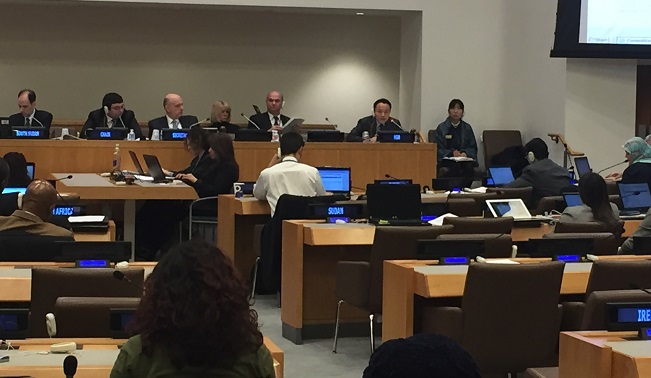
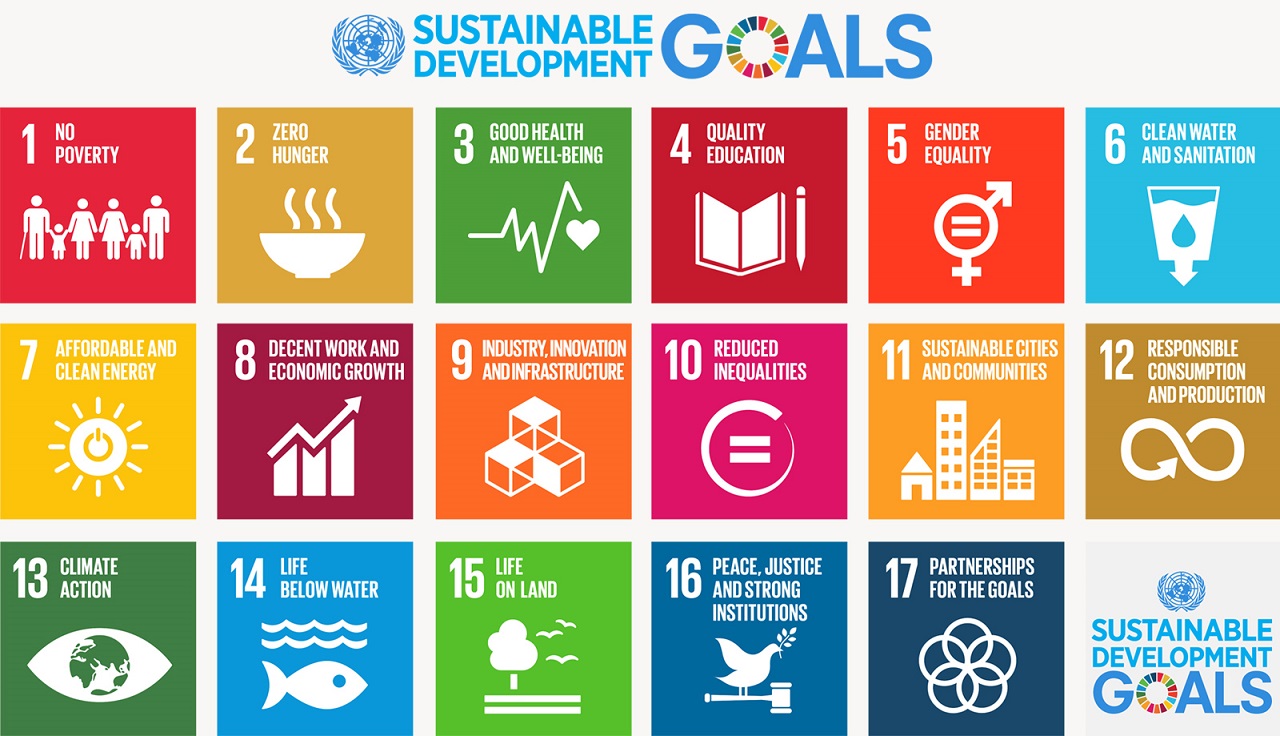
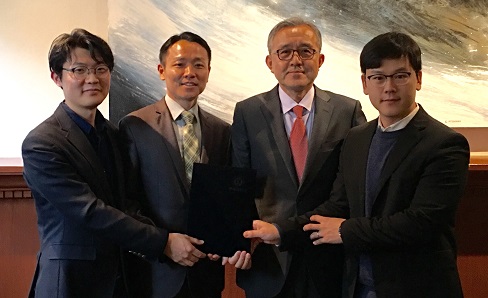
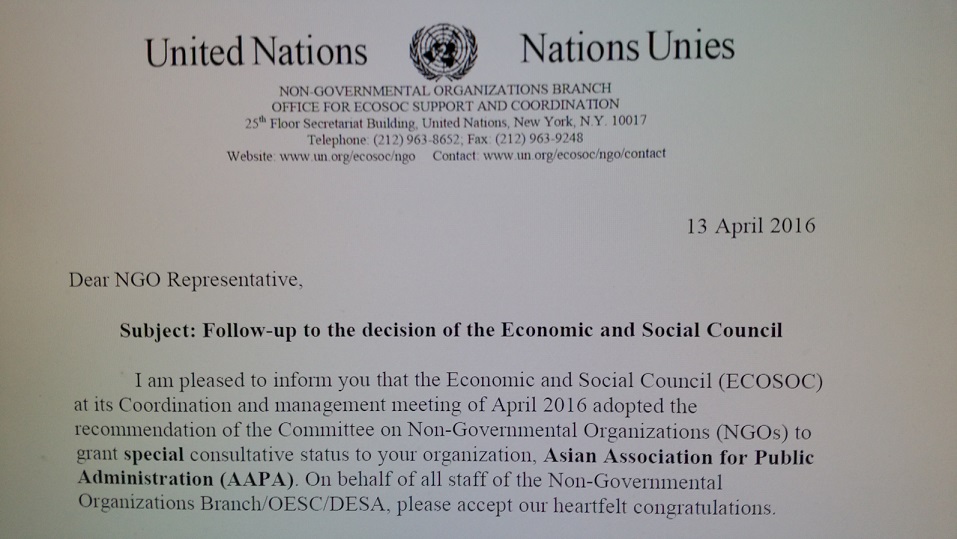
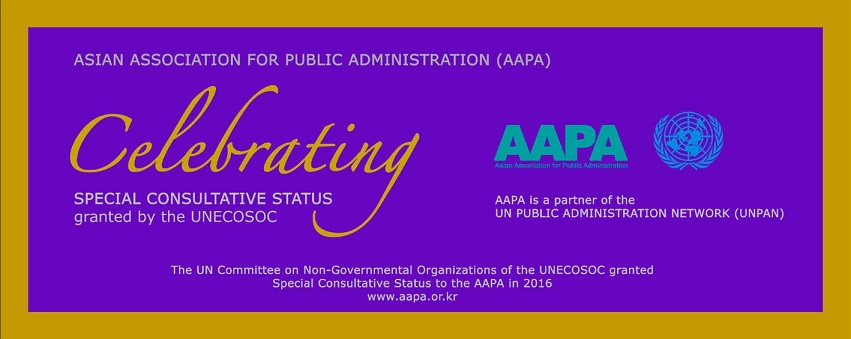
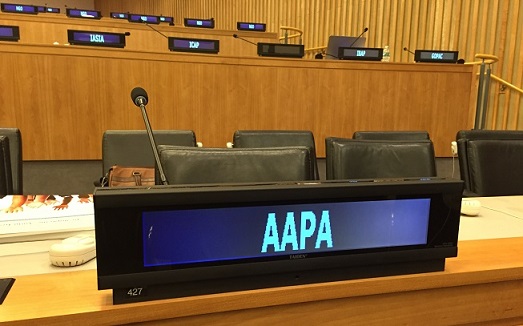
Opening its regular session for 2016 on January 25th, the UN Committee on Non-Governmental Organizations recommended a number of non-governmental organizations including the Asian Association for Public Administration (AAPA) for “Special Consultative Status” with the United Nations Economic and Social Council (UNECOSOC).
The UN Committee on Non-Governmental Organizations is a standing committee of the Economic and Social Council (ECOSOC) composed of 19 members (5 members from African States; 4 members from Asian States; 2 members from Eastern European States; 4 members from Latin American and Caribbean States; and 4 members from Western European and other States). This committee had its regular session at the UN headquarters in New York from January 25 to February 3, 2016. The 19-member Committee vets applications submitted by non-governmental organizations, recommending general, special or roster status on the basis of such criteria as the applicant’s mandate, governance and financial regime. Organizations enjoying "general" and "special" consultative status can attend meetings of the Council and issue statements at the United Nations.
Consultative Status has its foundation in Article 71 of Chapter 10 of the United Nations Charter. Article 71 of the UN Charter opened the door by providing suitable arrangements for consultations with non-governmental organizations: "The Economic and Social Council may make suitable arrangements for consultation with non-governmental organizations which are concerned with matters within its competence. Such arrangements may be made with international organizations and, where appropriate, with national organizations after consultation with the Member of the United Nations concerned." There are three classes of Consultative Status defined by 1996/31, General, Special & Roster. These classes were the equivalent of Category I, Category II & Roster status that were defined in 1296 (XLIV). Non-governmental organizations in consultative status with ECOSOC can designate representatives to obtain passes for UN premises. Special Consultative Status: Organizations that have a special competence in, and are concerned specifically with, only a few of the fields of activity covered by the Council and its subsidiary bodies, and that are known within the fields for which they have or seek consultative status shall be known as organizations in special consultative status. During a question-and-answer session of the committee meeting in the afternoon of January 25th, 2016, a representative (Dr. Bokgyo Jonathan Jeong) of the Asian Association for Public Administration (AAPA) responded well to several committee members’ questions. AAPA President Pan Suk Kim applied for the UNECOSOC's Special Consultative Status in 2015 and he sent two delegates (Dr. Bokgyo Jonathan Jeong and Mr. Dongyeon Kang) to the committee meeting on January 25th, 2016. AAPA President Pan Suk Kim awarded a Certificate of Appreciation to three persons (Dr. Bok Gyo Jeong, Mr. Taein Park, and Mr. Dongyoen Kang) for their assistance and commitment in the process of the application of the UN Special Consultative Status in 2015-2016. AAPA was granted Special Consultative Status by the Economic and Social Council (ECOSOC) of the United Nations, which helps to facilitate our work with governments, NGOs, and other institutions and organizations that are working towards sustainable development. UN Sustainable Development Goals (SDGs): http://www.un.org/sustainabledevelopment/sustainable-development-goals/ Goal 1. End poverty in all its forms everywhere Goal 2. End hunger, achieve food security and improved nutrition, and promote sustainable agriculture Goal 3. Ensure healthy lives and promote well-being for all at all ages Goal 4. Ensure inclusive and equitable quality education and promote life-long learning opportunities for all Goal 5. Achieve gender equality and empower all women and girls Goal 6. Ensure availability and sustainable management of water and sanitation for all Goal 7. Ensure access to affordable, reliable, sustainable, and modern energy for all Goal 8. Promote sustained, inclusive and sustainable economic growth, full and productive employment and decent work for all Goal 9. Build resilient infrastructure, promote inclusive and sustainable industrialization and foster innovation Goal 10. Reduce inequality within and among countries Goal 11. Make cities and human settlements inclusive, safe, resilient and sustainable Goal 12. Ensure sustainable consumption and production patterns Goal 13. Take urgent action to combat climate change and its impacts Goal 14. Conserve and sustainably use the oceans, seas and marine resources for sustainable development Goal 15. Protect, restore and promote sustainable use of terrestrial ecosystems, sustainably manage forests, combat desertification, and halt and reverse land degradation and halt biodiversity loss Goal 16. Promote peaceful and inclusive societies for sustainable development, provide access to justice for all and build effective, accountable and inclusive institutions at all levels Goal 17. Strengthen the means of implementation and revitalize the global partnership for sustainable development
AAPA 2018 Annual Conference in Indonesia on March 22-23, 2018
International Graduate Research Conference in Chiang Mai, Thailand on December 11, 2015



